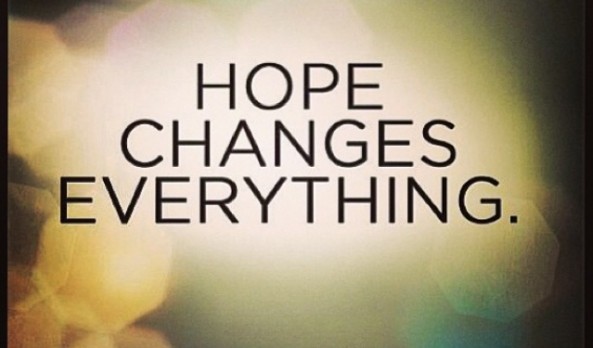How can we understand the presence of evil in the world? If God is present and has saved us in Christ Jesus, shouldn’t everything be all good? How can bad things continue to happen in a world made good through Christ? We often ask the ontological question, how can it be or why is there evil in the world? Yet Jesus talks more often about this tension as he teaches his disciples about how to live lives of faith. He seems to assume that good and evil co-exist, at least in this time, but this will be different in the time that is becoming.
Why is their evil in the world?
Jesus tells a parable, not to explain everything, but to point to a comparison. The world is not like a field. Rather the way in which the Kingdom of God, or the Empire of God is becoming in the world is like what happens when a landowner goes out to sow seeds in his field. We lose sight of the word when we focus to tightly on the details, or we can easily mistake the trees for the forest. Jesus is affirming that God’s empire is in actively in the world. It’s creative and life-giving. It is opposed, not by the world or other people, but by the enemy. Yet although we see the hindrance of God’s purposes, God’s empire cannot be destroyed or stopped. Jesus explains that evil and good are inscrutable at some point in their becoming. Only the Sower can differentiate between the wheat and the weeds, the servants risk confounding them. Good and evil co-exist, we need to trust God to sort things out, in Bible-se – “to do the harvest.” An image commonly used in the Bible [Jeremiah 51:33; Joel 3:12; Hosea 6.1]. It’s difficult to distinguish between seedlings , but later as the plants develop the difference is striking. There is no justification for the existence of evil. It simply is in the world. The world isn’t evil. Neither are we. Rather evil is present in the world, like how bad seeds are sneakily planted by an enemy in the field of wheat seedlings in the parable. Again we often lose sight of the forest when we focus on one tree.
How do we live in the tension of today?
In his letter of pastoral advice and theological explanation to the church in ancient Rome, Paul writes to explain how to live by faith in the tension of today. How are we free when our world seems to be enslaved by suffering? What difference does faith make when we see “bad things happening to good people?” Paul elucidates the mystery and promise of God’s power. Our salvation is not an historic past event, or static present occurrence. Rather through faith we are becoming, emerging – a dynamic of, passion, potential and promise. Life by faith is less about proof than it is about hope, more about expectancy then it is about certainty. We aren’t Christian. We are becoming disciples. Life is explained not by a brief list or easy to remember acronym. Rather, we live life in the promise of an inheritance that is both sure and certain, and unknown and emerging. We live both with & into hope.
So what does that mean for us today in our lives? How does that help me when I’m faced with difficulties, diversions, decay and depression? The texts point us towards a deeper truth, an exuberance to be lived from the center of hope and in a life lived into hope. We’re not called to be idealistic happy-go-lucky naive hippies bradding each other’s hair with daisy chains while suffering surrounds us. But nor are we called to be consumed and focused about the evil, destructive and decaying in our past and present. We read the scriptures – the testimonies of what God has done in the lives of those that have come before us – not as a closed text, but as a reminder that God has acted, a lens though which we are invited to see expectantly and await patiently (not passively) what God is making come to pass.
If I started my day (and when I say “I” I mean “we”) with that vigorous anticipation each morning, as opposed to my mental list anticipating the troubles to overcome, how might I be more present with the people I love, those I encounter in my daily journeys, and see the world for what it is, not what I fear it might become. It’s in that hope of living into hope, that the mystics all strove to lead lives centered in hope, in the presence of God’s love, the awareness of the Divine Presence, with the new breath with which the Spirit of God fills us that we might live abundantly. It’s not just a question of thinking of knowing the right thing. It’s more than doing the right thing. It’s living beyond the tension in which we find ourselves, and around which the world spins. How do you focus on, center yourself in, and orient your life energies towards hope?
Questions for Going Deeper
1. What word, phrase or image grabs you in the texts?
2. How do you struggle to persevere in the tension of today?
3. What hope does faith give you to live vigorously?
